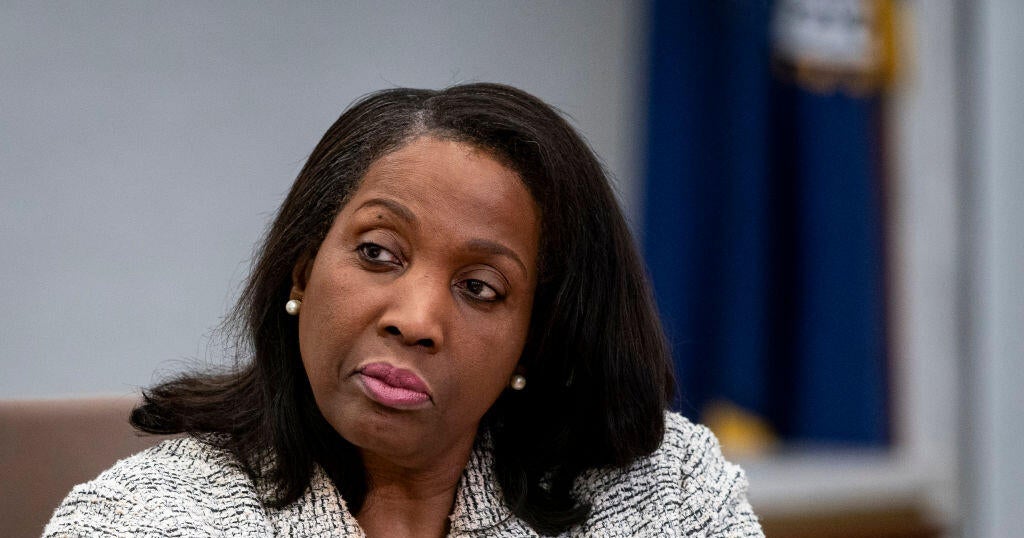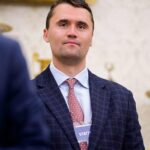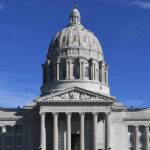In an intensifying conflict at the nexus of U.S. financial regulation and politics, the Trump administration is pressing the judiciary to unblock a presidential maneuver to oust Federal Reserve Governor Lisa Cook. This legal tug-of-war unfolds as a critical monetary policy meeting looms—a session that could decide the direction of interest rates amid delicate economic conditions.
On a recent Thursday, a plea was made by the Trump administration to the U.S. Court of Appeals for the D.C. Circuit, aiming for a suspension of the lower court’s decision that halted President Trump from dismissing Federal Reserve Governor Lisa Cook. This appeal is framed by an urgent schedule, pressing for resolution ahead of next week’s key monetary policy meeting conducted by the Federal Reserve’s Open Market Committee (FOMC), which has significant influence over the economic trajectory through its interest rate decisions.
This legal narrative began last month when President Trump, wielding accusations of fraud, attempted to remove Governor Cook from the influential Federal Reserve Board. He claimed she engaged in dishonest conduct by falsely citing two different residences as her primary home in official mortgage documentation. This dramatic move was quickly countered by the judicial system. U.S. District Judge Jia Cobb intervened, issuing a restraining order on the basis that the President’s rationale did not meet the stringent legal standards required to dismiss a Federal Reserve board member. Perilously, Federal Reserve Governors have a protected tenure of 14 years and can only be removed for just cause, a threshold that Judge Cobb ruled was not met in Cook’s case.
The Department of Justice, representing the Trump administration, articulated in its appeal that the President holds expansive authority to dismiss federal appointees, arguing that the determination of “cause” is largely at his discretion. Furthermore, they asserted that the judiciary should have minimal intervention in such presidential decisions. The essence of their argument highlighted alleged misconduct by Cook in her financial dealings, which they claimed undermines her credibility and poses a risk to her capacity to manage national economic interests effectively.
These allegations stemmed from disclosures initially made by Bill Pulte, Director of the Federal Housing Finance Agency and a Trump appointee, who reported irregularities in mortgage documents concerning properties bought by Cook in Georgia and Michigan back in 2021. However, Cook’s legal counsel, led by attorney Abbe Lowell, has dismissed these accusations as “unsubstantiated and vague,” pointing to a lack of concrete evidence and questioning the timing and motivations behind the allegations.
The urgency with which the administration seeks a resolution is underscored by their request for the appeals court to expedite its decision to Monday end-of-day—a timeline set sharply before the Federal Open Market Committee’s meeting scheduled for Tuesday and Wednesday. The significance of this meeting cannot be overstressed, as it is expected that the committee may decide to cut interest rates, a move that has wide-ranging implications for economic growth, inflation, and overall financial stability.
On the other hand, Cook’s defense team, standing firm against the appeal, argues that granting the administration’s request would unjustifiably disrupt the status quo and could potentially cast the upcoming FOMC meeting into disarray. They warn of significant repercussions, not just domestically but for international markets as well, should Cook be abruptly removed from the proceedings.
Adding another layer to this complex situation is the broader political context. President Trump has been openly critical of the Federal Reserve’s recent decisions under Chair Jerome Powell—whom he derisively nicknames “Mr. Too Late”—particularly concerning the handling of interest rates. The President believes the rate-setting committee should actively work to counter Powell, whose tenure ends in May. Thus, Cook’s removal could further politicize the Fed by potentially allowing Trump an opportunity to appoint a successor more aligned with his economic views, thereby shifting the balance of power within the Board of Governors.
As both legal teams prepare for the possibility of adjudication, it bears mentioning that the FOMC’s independence is a cornerstone of its design, historically operating with minimal political interference. This structure is intended to ensure economic decisions are made based on data and expert analysis rather than political expediency. Nonetheless, this unfolding legal battle underscores the inherent tensions between different branches of government and the potential for significant economic policymaking to be caught in the crossfire.
As observers await the appellate court’s decision, which must arrive promptly given the impending FOMC meeting, the broader implications hang in the balance. Not only are the immediate economic policies at stake, but so too is the integrity and independence of one of the nation’s most pivotal financial institutions. This case serves as a poignant reminder of the delicate interplay between governance, judiciary oversight, and economic stewardship in the United States.









